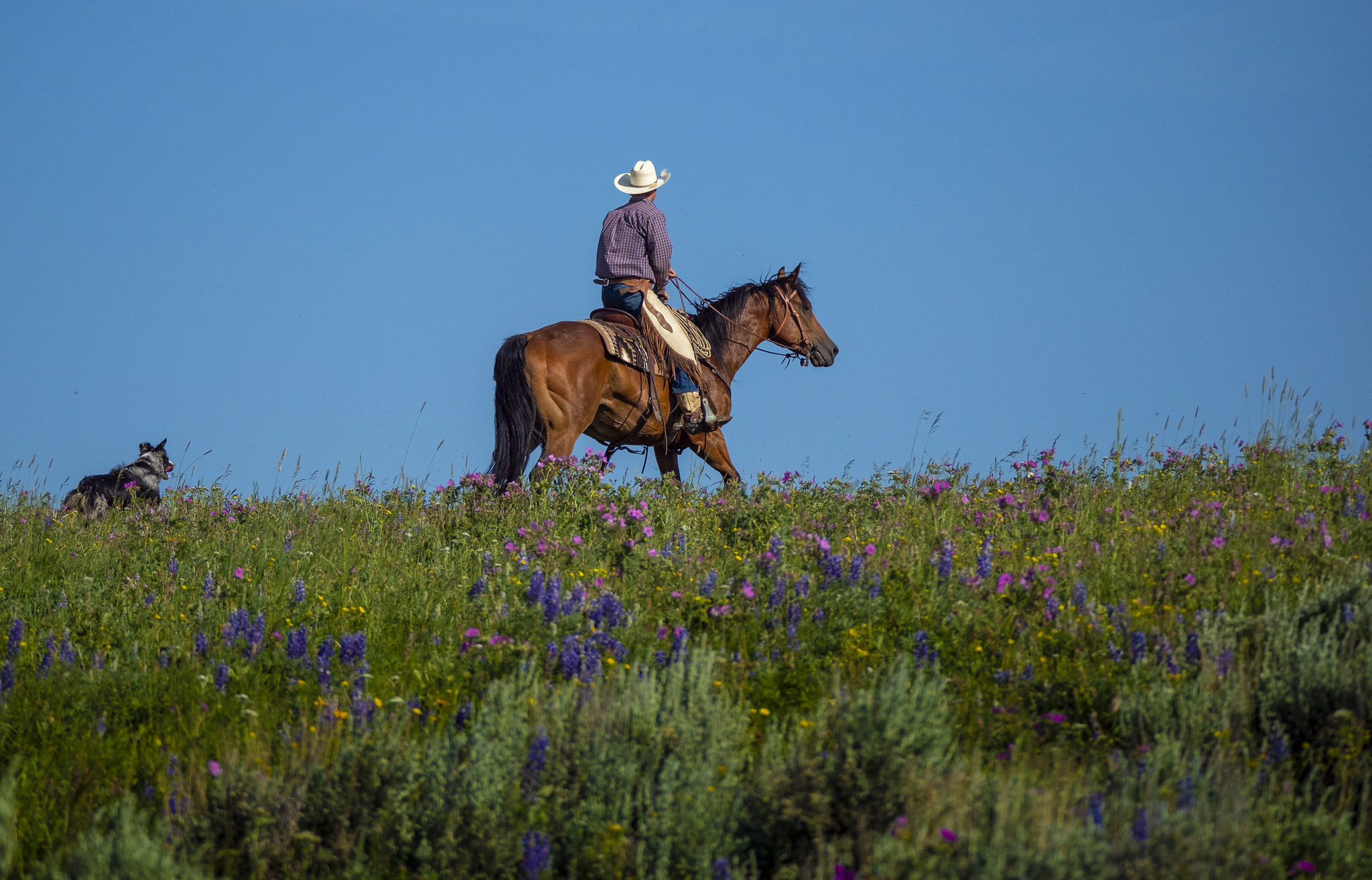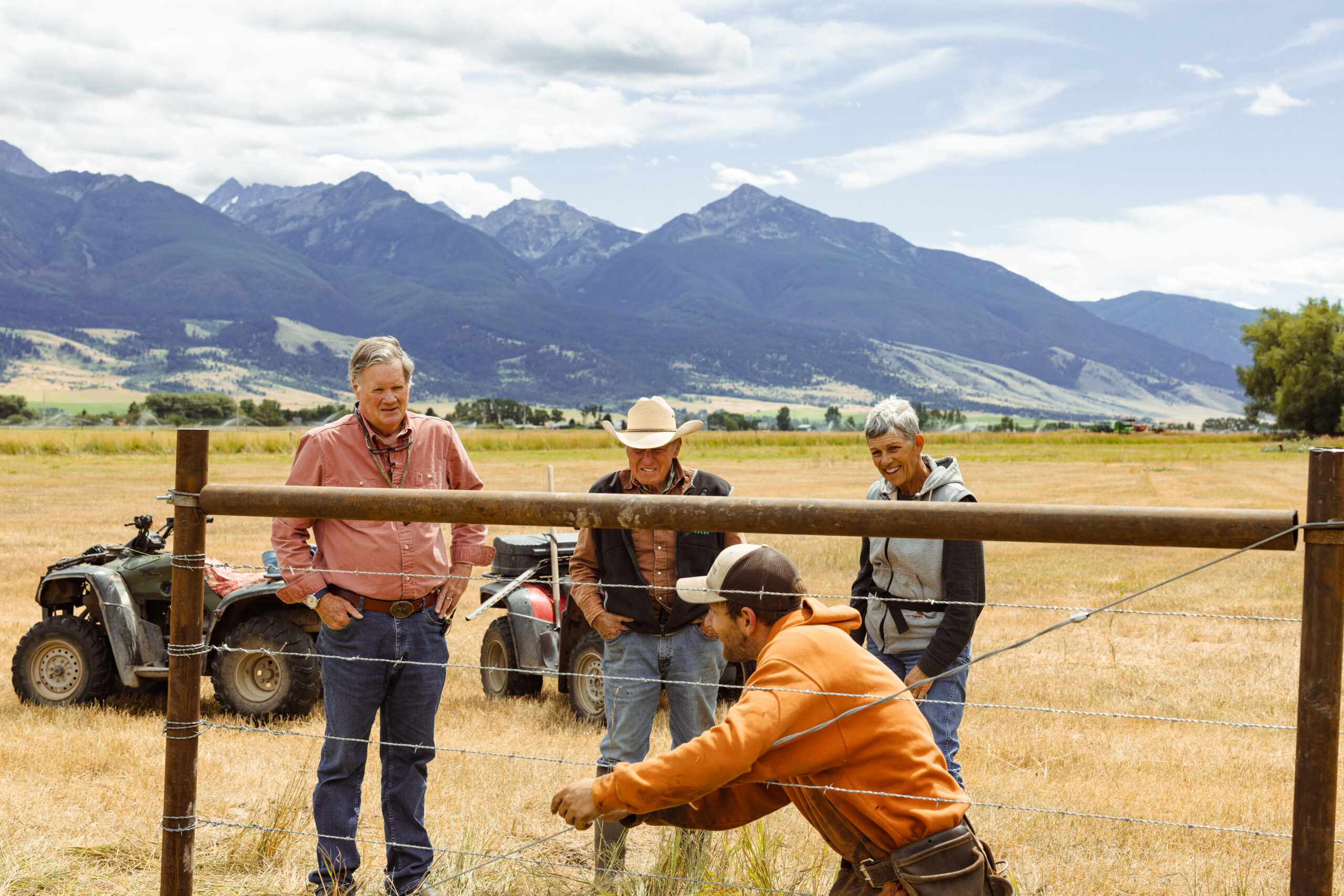Today, people around the globe are celebrating Earth Day—a chance to recognize the natural world we live in and rely on. This year, the worldwide Earth Day celebration is centered around the theme “Invest in Our Planet,” with explicit calls for governments to take action. At PERC, we take a different approach. We believe that proactive, voluntary human action is an essential way to improve our natural world. When we utilize human ingenuity and the free market, we can effectively steward the Earth and her resources.
PERC is invested in taking action to improve conservation outcomes around the world. Through our research and real-world application, we demonstrate how property rights, markets, and incentives can deliver healthy land, water, and wildlife. This Earth Day, we’re reflecting on a few examples of our investment to create a world where conservation is empowered not through government action, but through individual cooperation and voluntary trade.
1. Elk Occupancy Agreement
As elk herds make their annual migration out of the high country in Yellowstone National Park down to their winter range on the private agricultural lands of Paradise Valley, they find themselves at the center of controversy. While the elk are seeking out forage to sustain them through the harsh Montana winters, ranchers are faced with footing the bill. When elk hunker down on private working lands, they can cause significant damage. Damaged fences, disease spread, and destruction of habitat are all unintended consequences of these winter guests. What is left is an enormous tension between rancher and elk.
PERC recognizes that ranchers are providing valuable wildlife habitat at personal cost, so we decided to find a way to financially compensate them for their contributions to public wildlife conservation. Our Elk Occupancy Agreement does just that and provides a chance for private landowners and wildlife enthusiasts to partner together to voluntarily conserve elk habitat. PERC and the Greater Yellowstone Coalition collaborated with a ranch in the Paradise Valley outside of Yellowstone National Park to set aside nearly 500 acres of elk winter range. The area intended for elk is sectioned off from livestock by 1.25 miles of wildlife-friendly fencing.
The first of its kind in Montana, the Elk Occupancy Agreement offers the landowner the flexibility of a temporary agreement, as opposed to a perpetual conservation easement. In exchange for compensation, the rancher manages the land for the benefit of the wildlife, which could include invasive weed treatments or wildfire mitigation. This solution allows landowners to be proactive in protecting Montana’s wildlife without putting their own herds or crops in danger, essentially setting aside valuable space for elk to weather the winters while migrating to Paradise Valley.
2. Reforming Utah Water Law
In the West, water is king. With drought, development, and mounting demands on the limited resource, water rights have long been a hotly debated topic in the world of conservation. Historically, water rights were strictly allocated for agricultural or other consumptive uses. Conservation was not considered a beneficial legal use of water and users who left water in-stream for conservation purposes risked losing their right to that water.
16 years ago, some forward-looking conservationists in Utah set out to change this. In a very lengthy and difficult process, representatives and landowners of Utah had to be convinced that private leases for instream flows are not only possible but could be mutually beneficial for fish and humans. During this process, members of the Utah Farm Bureau met with Montana ranchers who had prior experience with private leases of water for conservation. This meeting succeeded in forming meaningful relationships between ranchers of Montana and Utah and creating trust with Utah’s lawmakers.
In 2022, the Utah legislature passed House Bill 33. Streamlining the legal process and removing ineffective restrictions, this bill allows any private person or entity to lease water for instream flows. As Representative Tim Hawkes explained, “Solving complex challenges requires extensive engagement with those most affected. In most states that means working with—not against—the agricultural community.”
PERC has long advocated for water markets. Throughout the years, we have researched and supported efforts to introduce water markets in the West. Through collaboration and innovative thinking, Utah now benefits from a legal system that allows citizens to protect their water through a market-based system.
3. Brucellosis Compensation Fund
In Paradise Valley, ranchers are kept up at night worrying about diseases being transferred from wildlife to their cattle. Rare and specific to the Greater Yellowstone Ecosystem, brucellosis is a disease that can pass from elk and bison to cattle and cause cows to abort their fetuses. If a herd is infected with Brucellosis, an extensive quarantine is required along with testing protocols which could last well over a year. In the worst-case scenario, this can depopulate an entire herd and financially ruin ranchers—one positive case could cost ranchers as much as $150,000.
PERC cares about keeping working lands, and the wildlife habitat they provide, working and knowing that alleviating the financial risk of brucellosis would be beneficial. To help, we created a private Brucellosis Compensation Fund. This privately financed compensation fund helps cover 50 to 75 percent of the cost of quarantine once a herd is infected with brucellosis. PERC has partnered with the Greater Yellowstone Coalition, Rocky Mountain Elk Foundation, Spruance Foundation, and Credova, an outdoor recreation financial technology company based in Bozeman, to extend this lifeline to ranchers. This is available to any rancher in Paradise Valley and allows ranchers to get a leg up when dealing with brucellosis. Through the Brucellosis Compensation Fund, ranchers, hunters, conservationists, and the broader community have come together to ensure that elk migration and open space are protected without penalizing ranchers.
2023 is the year of investing in our planet. We can do so by investing in the people who are actively working, managing, and caring for the land. This Earth Day, let’s not let these successes go uncelebrated.




